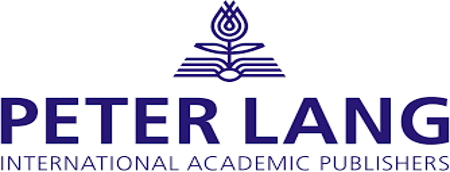2021/8- International Book Chapter Call: Global Risks and Crises Management in Tourism: Post-Pandemic International System and Globalization
Distinguished Scientists,
We have started an international book project named “Post-Pandemic International System and Globalization” with Peter Lang Publishing House. You can see all the details of the project (sample topics, dates, etc.) below. If you would like to write a chapter for the book, please send your chapter proposals to [email protected].
You can find details and call for the chapter in the attachment.
Sincerely yours,
EDITOR
Ali AYATA, Prof. Dr.
Sabri AYDIN, Dr.
PUBLICATION COORDINATOR
Ragıp PEHLİVANLI (InGlobe Academy)
LANGUAGE OF THE BOOK
English
IMPORTANT DATES
Chapter Proposals Deadline : July 30, 2021
Acceptance Notification : August 30, 2021
Full Text Deadline : August 30, 2021
Expected Publication Date : 2021
ÇAĞRI METNİNİ İNDİRİN (TÜRKÇE)
DOWNLOAD CALL FOR CHAPTER (ENGLISH)
CALL FOR CHAPTERS
With the global problems created by the new type of coronavirus (Covid-19) pandemic, which has rapidly affected the whole world, a new order has been taken where the concept of normal has begun to be questioned. As the pandemic gained a global character and affected every aspect of life, from economy to social relations, it was inevitable that it would have transformative effects on global politics. This pandemic, which dominates international relations and has the capacity to change the system, is the biggest epidemic disease the world has faced after the Spanish Flu in 1918, which is estimated to have killed fifty million people, and perhaps the biggest experience that affected the whole world after World War II.
Covid-19 will undoubtedly affect international relations and the international system. The extent of this effect will be determined by the duration of the epidemic and the damage it will cause. It is clear that developments such as the global economic recession, the strengthening of authoritarianism, the spread of remote working and digitalization in business and social life, the increase in the shares allocated to health and emergency planning in state budgets will show themselves in the short term. It is obvious that such developments will have a direct impact on the shaping of international relations and the global order after Covid-19. For example, attitudes such as an increase in authoritarian and populist tendencies, skepticism regarding multiculturalism, the increasing importance and elevation of state borders, the strengthening of isolationist attitudes, and the questioning of the reasons for the existence of the European Union and some other international organizations are expected to prevail in the post-Covid-19 order. For this reason, the course of the discussion regarding the post-Covid-19 period will change in line with the scale of the transformation and whether it will cause systemic shifts in the global sense, rather than whether the transformation will occur.
For example, it is noteworthy that the EU, which is the most important supranational structure and economic and political integration model, was late in responding to the crisis, did not have a suitable mechanism to combat the crisis, and that its leading members such as Germany and France put their national security first. The fact that they left a member state like Italy, which had a very difficult time at the beginning of the pandemic, alone and the closure of national borders caused both the EU to be questioned and the ‘One Europe’ understanding to be greatly damaged.
It is expected that the necessity of protecting the borders of the country will come to the fore again and the nation-state regaining its importance will weaken the formations such as the EU. In addition, while the effects of the pandemic are getting stronger in the west, it is expected that China’s overcoming this problem will cause western values and management understanding to be questioned.
Although the Corona virus, which started in the Wuhan province of China, initially seemed like an ordinary epidemic, it was later understood that it was not. This study plans to deal with the possible effects of the epidemic, which has already become a global health disaster in terms of its consequences, with socioeconomic and political characteristics at the international level. In this context, in this study, what kind of effects the coronavirus has in the international system, how states react to it, the effects of globalization in the spread of the epidemic, which factors will be prioritized if a possible system change is made, possible post-epidemic international systems and models, international organizations and states’ influence areas and transformations Topics will be prioritized.
We invite researchers to contribute to the international study prepared for this purpose. Thank you in advance for your cooperation and contributions and wish you success in your works.




